Welcome to my blog!
Every morning, I begin with a cup of coffee and 15 minutes of free thinking. I write down everything that comes to mind, from new ideas to thoughts that emerged overnight. This is where I develop and refine my new research. You'll find some repetition and ideas still in progress. Some might seem unusual or unclear at first, but that's part of the journey! I'm excited to share how my ideas form and evolve.
Exploring the relationship between logic and language, and questioning whether this relationship ultimately leads to psychologism.
Examining the central role of language in Twentieth-century analytical philosophy and the relationship between language, thought, and logic.
Exploring the distinct roles of logic and mathematics in understanding material and conceptual coherence, and how each contributes to different domains of reasoning.
Examining the possibility of non-violent change in addressing epistemic oppression and the potential for a "quiet revolution" in rebalancing societal powers.
Exploring the limitations of traditional Marxist theory in addressing modern societal complexities and the emergence of epistemic powers that shape contemporary inequities.
Today, I have the great honour of having a friend and colleague, Dr. Padriac O'Leary, contributing to Logic in the Wild blog. Dr. O'Leary recently joined the Computer Science department at the University of Auckland after completing a Ph.D. in philosophy with Prof. Fred Kroon. Today, Padriac elaborates on the idea of "logical impressionism," delving into its role in preserving coherence in complex contexts and its distinction from formal logic and rhetoric.
Exploring the principle of the climber’s agreement in the climbing community and proposing a similar approach to coherence and understanding in logical discourse.
Exploring the intersection of social epistemology and logic, examining how knowledge and coherence are affected when perspectives are pooled in a community.
Boolean negation inherits the law of non-contradiction from mathematics, but does it also get the rule of explosion? Exploring the implications of Boolean negation for logical consistency and the potential for coherent reasoning in the presence of inconsistency.
Exploring how intersectionality challenges the concept of sex as a binary or spectrum and invites us to view it through a pluralistic manifold.
Exploring the intersection of practice and theory in logic, and how a richer approach enhances both.
Exploring Andrea Nye's critique of logic and the challenges of addressing gender symbolism in philosophical discourse.
Examining the historical exclusion of women from the domain of logic and how feminism reveals the unequal distribution of epistemic power and the fabrication of gendered reasoning.
Exploring how Ancient Greek notions of harmony reveal the essence of logical thinking as a pursuit of coherence, connecting music, mathematics, and the cosmos.
This post explores how the term ‘logic’ is used in various contexts, from political ideologies to natural processes, and questions whether it genuinely reflects logical reasoning in the scenarios it describes.
In this post, I explore the implications of the "Kiwi Before Iwi" slogan and its strict adherence to the logic of equality, questioning whether it truly serves justice or perpetuates inequality.
This post explores the distinctions between neutrality, equality, and equity in logical discourse, emphasizing the importance of creating a fair and inclusive space for dialectical enquiry. While neutrality aims for equal treatment, true equity ensures that all voices are heard and valued, preventing the erasure of marginalized perspectives.
This post explores David Lewis's theory of modal realism, which posits the existence of possible worlds to account for our modal discourse, and asks whether this view is coherent and cogent.
This post delves into the complex task of defining the self, examining the role of logic in providing coherence to our understanding of identity and presence in the world.
This post explores the intriguing connection between logical thinking and authenticity, suggesting that coherence rather than truth might be the key to understanding our true selves.
Exploring a concrete example of logic in everyday life, this post challenges the perception of logic as an emotionless, external tool. It highlights how logic protects us by guarding coherence in reasoning, rather than dictating surprising, non-human decisions.
This post explores the principle of charity in argumentation, emphasizing the importance of interpreting others' arguments generously and the role of logic in fostering charitable discourse.
This post explores the necessity of logic in community development, highlighting how logical interaction fosters a neutral space for dialectical enquiry, enabling diverse perspectives to find common ground without imposing majority beliefs.
In this post, I explore how epistemic structures, akin to Kuhn's scientific paradigms, can become oppressive logical monsters. These structures, passed down through generations, resist change and contribute to systemic injustice. Can seeking coherence in dialectical enquiry offer a path to overcoming cultural incommensurability and fostering better communication across paradigms? Is a Kuhnian analysis the right approach to understand epistemic oppression?
Short description: This post explores the concept of "emerging structural oppression," examining how power structures evolve and perpetuate systemic and epistemic oppression, with a focus on the role of logic in reinforcing these injustices.
his post explores how logic can be systemically oppressive, drawing on the works of Fricker, Dotson, and Mills to examine the intersection of epistemic injustice, white ignorance, and the inertia of dominant epistemic systems.
This post asks why we keep interrupting each other. Is it out of good intentions? Learn how a simple trick of posing uptake questions can help us do better.
This post explores the importance of engaging with a logical mindset in discussions, using a personal experience to illustrate how logical enquiry can foster constructive communication.
This post explores whether logical injustice is a distinct kind of injustice or if it is reducible to social injustice, drawing parallels with epistemic and hermeneutical injustices.
Examining the ways populism exploits incoherence and bad logic to make truth irrelevant, and the dangers this poses to political discourse.
Examining the possibility of non-violent change in addressing epistemic oppression and the potential for a "quiet revolution" in rebalancing societal powers.
Exploring the limitations of traditional Marxist theory in addressing modern societal complexities and the emergence of epistemic powers that shape contemporary inequities.
This post explores how the term ‘logic’ is used in various contexts, from political ideologies to natural processes, and questions whether it genuinely reflects logical reasoning in the scenarios it describes.
In this post, I explore the implications of the "Kiwi Before Iwi" slogan and its strict adherence to the logic of equality, questioning whether it truly serves justice or perpetuates inequality.
This post challenges the rapid-fire nature of social media interactions and proposes the concept of "logic duty" as a civic responsibility to deliberate on societal issues, encouraging deeper understanding and coherent decision-making beyond the divisive echo chambers.
This post explores how learning logic not only sharpens individual reasoning and debate skills but more importantly serves as a foundational tool for fostering societal cohesion and constructive dialogue.
This post discusses the nuanced question of whether accusations of racism can themselves be racially motivated, especially in light of recent criticisms by NZ political leaders against designated spaces for Māori and Pacifica students.
This blog addresses the contentious debate surrounding designated spaces for Māori and Pacifica students at The University of Auckland, refuting accusations of racism with a nuanced discussion on community, identity, and the tu quoque fallacy.
This blog post is a response to Winston Peters' "state of the nation" speech, focusing on his incoherent analogy between the Labour Party and Nazi Germany, and and denouncing his deployment of inflammatory demagogical rhetoric in prominent New Zealand's political discourse.
This post examines how demands for equity by marginalized groups are often misinterpreted as calls for special treatment, particularly when these groups are ethnic minorities, using a notable speech by Don Brash as a case study.
This post critiques the divisive rhetoric of New Zealand's political leaders, urging a more mature approach to discourse while preserving the passionate critique embedded in the original argument.
This post explores the nuanced dynamics of group versus individual accountability, particularly in historical and social justice contexts, emphasizing the complexity of attributing actions and consequences across different societal levels.
This post explores how the interpretation of the Treaty of Waitangi's translations can lead to a form of oppression through the imposition of foreign logical frameworks on Māori concepts, using the term 'tikanga' as a key example.
In this post, we examine abstract equality through logic and its potential to overlook the experiences of marginalized groups.
Exploring the value of a father's advice, "Shut up and listen!", this post urges leaders to embrace active listening in the context of Waitangi weekend.
This post explores how narrowing our focus from broad generalizations to specific groups reveals deeper truths and addresses social inequities.
Is societal justice about treating everyone identically, or does it demand a more nuanced, equitable approach?
This post explores the tension between logical neutrality and the erasure of individual identities in New Zealand's political landscape, examining the implications for Māori communities.
Exploring the crucial role of logical integrity in political decision-making, this post examines the varied application of logic in politics through the case of New Zealand Prime Minister Christopher Luxon's early actions and statements, emphasizing the need for consistent logical reasoning in governance.
This piece delves into the nuanced spectrum between competition and cooperation, questioning traditional views of these concepts and exploring their roles in both natural and human-made systems.
In this post, I explore the forest as a metaphor for competition and cooperation, contrasting the individualistic struggle for resources with the collaborative symbiosis of the ecosystem, and introducing relational ontology as a holistic view that transcends these dualities.
This blog delves into the concept of relational identity, drawing from Māori philosophy and Anne Salmond's work, to explore how identity extends beyond personal confines and encompasses a holistic network of relationships, particularly within the LGBTQ+ community.
Exploring the principle of the climber’s agreement in the climbing community and proposing a similar approach to coherence and understanding in logical discourse.
This post explores the principle of charity in argumentation, emphasizing the importance of interpreting others' arguments generously and the role of logic in fostering charitable discourse.
Exploring logical injustice, the post emphasizes the importance of using appropriate logical standards in everyday discussions and decision-making.
Drawing from the traditional principle of charity, I introduce the Principle of Logical Charity, encouraging the treatment of others' views as both intelligent and logically coherent in conversations.
In this blog post, I explore how my journey as a logician, initially focused on abstract content, evolved to embrace real-world interactions, from teaching diverse students to considering feminist critiques and the nature of metaphysics and mathematics.
Exploring the distinct roles of logic and mathematics in understanding material and conceptual coherence, and how each contributes to different domains of reasoning.
Exploring how Ancient Greek notions of harmony reveal the essence of logical thinking as a pursuit of coherence, connecting music, mathematics, and the cosmos.
This post explores how the term ‘logic’ is used in various contexts, from political ideologies to natural processes, and questions whether it genuinely reflects logical reasoning in the scenarios it describes.
This post delves into the complex task of defining the self, examining the role of logic in providing coherence to our understanding of identity and presence in the world.
This post explores the intriguing connection between logical thinking and authenticity, suggesting that coherence rather than truth might be the key to understanding our true selves.
Exploring a concrete example of logic in everyday life, this post challenges the perception of logic as an emotionless, external tool. It highlights how logic protects us by guarding coherence in reasoning, rather than dictating surprising, non-human decisions.
his post explores how logic can be systemically oppressive, drawing on the works of Fricker, Dotson, and Mills to examine the intersection of epistemic injustice, white ignorance, and the inertia of dominant epistemic systems.
This post explores whether logical injustice is a distinct kind of injustice or if it is reducible to social injustice, drawing parallels with epistemic and hermeneutical injustices.
This blog post introduces the concept of logical injustice, exploring its parallels with epistemic and hermeneutical injustices, and discusses how failing to appreciate the coherence in someone's thoughts constitutes this new form of injustice.
In this blog post, I propose the rule of trivialisation as a generalisation of the logical rule of Explosion, and I discuss difficulties in finding practical ways of using it. I question whether absurdity could provide a new metric for assessing logical coherence.
This blog post discusses the rule of explosion in logic, which posits that from any contradiction, everything follows—resulting in what is known as triviality. I explore the limitations of this principle and introduce a nuanced approach termed 'trivialisation' that seeks to redefine how we measure coherence without insisting on strict consistency.
This blog post explores the intricate relationship between logical and conceptual choices, questioning whether decisions based solely on definitions can exist independently of logical connections, and how logic imposes boundaries on conceptual behavior.
This blog post discusses the principle of explosion in logic, exploring how it traditionally mandates that any contradiction leads to everything becoming true, and why some modern logicians choose to reject this rule to handle inevitable contradictions more gracefully.
This post examines how logic extends beyond mere truth-seeking, illustrating its role in understanding coherence in historical scientific theories and contemporary societal debates, from ancient optics to modern sports equity.
This post examines the transition from the symbolic complexities of logic to its practical applications in daily life, questioning how deeply the principles of logical theory influence our everyday reasoning.
Exploring the role of logic in enhancing personal understanding and improving community interactions, facilitating a bridge between differing perspectives.
This post explores the deep-seated issues of epistemic injustice faced by queer and trans individuals, highlighting the pivotal role of language and community in affirming identity and the dire consequences of its absence.
This blog post is a response to Winston Peters' "state of the nation" speech, focusing on his incoherent analogy between the Labour Party and Nazi Germany, and and denouncing his deployment of inflammatory demagogical rhetoric in prominent New Zealand's political discourse.
In this post, the Logic in the Wild framework is employed to refresh feminist critiques of logic, steering away from evolutionary simplifications and gender symbolism errors.
Exploring a friend's journey with Jesus, this post reveals how his faith leads to a profound appreciation for the beauty in every individual, transcending traditional religious divides.
This post explores the ethical implications of logical coherence through the lens of Viktor Bout's life, illustrating how logic's misuse can lead to morally questionable outcomes.
Exploring the value of a father's advice, "Shut up and listen!", this post urges leaders to embrace active listening in the context of Waitangi weekend.
Can harmony be considered as a guardian of coherence?
This post explores the intersection of logic and empathy in understanding others, highlighting the limitations of empathy in our socially fragmented world and the role of logic as a 'guardian of coherence'.
In this post, I explore how changing content in a farcical setting, as shown in "Happiest Season," dramatically shifts its narrative impact from comedy to tragedy, prompting reflection on what this teaches us about logic and coherence when contexts are altered.
In this post, I examine Barbie's pearl of wisdom from her latest movie, revealing the enriching balance between logic and emotion.
o conclude a provocative blog week, this post defends dialetheism, weaving together this unique philosophical perspective with the ideas of validity as a social construct and logical nihilism.
Revisiting the concept of validity as a social construct, this post incorporates insights from Gillian Russell and logical nihilism, enhancing the understanding of logic as 'the guardian of coherence' in 'Logic in the Wild'.
Logic in the Wild argues against the conventional formal/informal logic divide, showcasing logic as a multifaceted guardian of coherence across various domains.
Exploring the crucial role of logical integrity in political decision-making, this post examines the varied application of logic in politics through the case of New Zealand Prime Minister Christopher Luxon's early actions and statements, emphasizing the need for consistent logical reasoning in governance.
This post explores the intersection of logic and empathy in understanding others, highlighting the limitations of empathy in our socially fragmented world and the role of logic as a 'guardian of coherence'.
o conclude a provocative blog week, this post defends dialetheism, weaving together this unique philosophical perspective with the ideas of validity as a social construct and logical nihilism.
This post examines the challenging demands of empathy in a polarized world and proposes logic as a vital tool to bridge understanding and foster empathy amidst diverse viewpoints.
Explore how the social constructs of sex, race, homosexuality, and heterosexuality are shaped by societal norms and scientific inquiry, revealing the intricate ways in which our understanding of identity is formed and challenged within the evolving landscapes of society and science.
Exploring the intricate link between gender identity and biological sex, this post investigates how societal constructs around 'man/woman' influence our understanding of the 'male/female' distinction. It questions the origins of social pressure that shapes our perceptions, challenging us to rethink the boundaries between biological realities and cultural expectations.
Highlighting the realization that societal pressures can lead science to alter its definitions, this post ventures into the intricate relationship between biology, astronomy, and the social constructs of sex and planetary classification.
Today, I have the great honour of having a friend and colleague, Dr. Padriac O'Leary, contributing to Logic in the Wild blog. Dr. O'Leary recently joined the Computer Science department at the University of Auckland after completing a Ph.D. in philosophy with Prof. Fred Kroon. Today, Padriac elaborates on the idea of "logical impressionism," delving into its role in preserving coherence in complex contexts and its distinction from formal logic and rhetoric.
Exploring the relationship between logic and language, and questioning whether this relationship ultimately leads to psychologism.
Examining the central role of language in Twentieth-century analytical philosophy and the relationship between language, thought, and logic.
Examining the possibility of non-violent change in addressing epistemic oppression and the potential for a "quiet revolution" in rebalancing societal powers.
Exploring the limitations of traditional Marxist theory in addressing modern societal complexities and the emergence of epistemic powers that shape contemporary inequities.
Exploring the intersection of social epistemology and logic, examining how knowledge and coherence are affected when perspectives are pooled in a community.
Boolean negation inherits the law of non-contradiction from mathematics, but does it also get the rule of explosion? Exploring the implications of Boolean negation for logical consistency and the potential for coherent reasoning in the presence of inconsistency.
Exploring the intersection of practice and theory in logic, and how a richer approach enhances both.
Exploring Andrea Nye's critique of logic and the challenges of addressing gender symbolism in philosophical discourse.
Examining the historical exclusion of women from the domain of logic and how feminism reveals the unequal distribution of epistemic power and the fabrication of gendered reasoning.
Exploring how Ancient Greek notions of harmony reveal the essence of logical thinking as a pursuit of coherence, connecting music, mathematics, and the cosmos.
This post explores David Lewis's theory of modal realism, which posits the existence of possible worlds to account for our modal discourse, and asks whether this view is coherent and cogent.
This blog post explores the role of logic as an epistemic tool, clarifying that while it does not directly determine truth, it is crucial in structuring knowledge. The discussion also touches on the concept of epistemic injustice and how denying logical tools can perpetuate systemic biases.
This post challenges the rapid-fire nature of social media interactions and proposes the concept of "logic duty" as a civic responsibility to deliberate on societal issues, encouraging deeper understanding and coherent decision-making beyond the divisive echo chambers.
This post examines how logic extends beyond mere truth-seeking, illustrating its role in understanding coherence in historical scientific theories and contemporary societal debates, from ancient optics to modern sports equity.
This post explores the perceived divide between the complex theories of formal logic and the practical logic we employ daily, bridging the gap between specialized academic knowledge and everyday reasoning.
This blog post explores Miranda Fricker's concept of testimonial injustice, examining whether epistemic injustice is appropriate unless knowledge is somehow objective.
Exploring a friend's journey with Jesus, this post reveals how his faith leads to a profound appreciation for the beauty in every individual, transcending traditional religious divides.
Exploring the depth of coming out, this post argues it encompasses far more than sexual preferences, embodying a rich identity and presence within the community.
Demonstrating how logic, as the guardian of coherence, directly led to the invention of the modern computer, transforming abstract theories into the foundation of today's technology.
This post explores classical logic, not as the logic of ancient times, but as a twentieth-century European development, focusing on its evolution from public debate tools to the formal languages shaping modern mathematics.
This post challenges the conventional understanding of evolutionary success, exploring the logical fallacies often embedded in patriarchal frameworks of biological interpretation.
This blog post challenges the prevalent notion that logic is alien to human nature, suggesting instead that it is an intrinsic tool evolved from our limitations.
After watching "Oppenheimer," a film about a pivotal scientific development, I'm inspired to share a thought-provoking quote from Rev. Māori Marsden's "The Woven Universe," offering a unique perspective on this historical moment.
In this post, I explore how changing content in a farcical setting, as shown in "Happiest Season," dramatically shifts its narrative impact from comedy to tragedy, prompting reflection on what this teaches us about logic and coherence when contexts are altered.
This post explores the challenges and potential solutions in addressing intersectional oppression through the lens of top-down and bottom-up logical approaches, inspired by the limitations of ceteris paribus logic in social contexts.
Exploring the WSCM equation, this post navigates through how upward and downward dynamics of oppression and privilege redefine intersectionality and call for a unified approach to social justice.
This post challenges the long-standing myths that marginalized groups possess lesser intellect, using intersectionality to highlight the absurdity of such claims.
This post explores the tension between logical neutrality and the erasure of individual identities in New Zealand's political landscape, examining the implications for Māori communities.
I examine the 'same logic, same response' slogan, focusing on its limitations.
Social Constructs Mediating Scientific Conceptualization: The Pressures of Society on Science
Explore how the social constructs of sex, race, homosexuality, and heterosexuality are shaped by societal norms and scientific inquiry, revealing the intricate ways in which our understanding of identity is formed and challenged within the evolving landscapes of society and science.
This week, I've talked about the notion of sex in humans as a social construct. My aim isn't to suggest that sex is purely a fabrication of human society—given the biological definition of sex based on gamete production—but to highlight that the societal operation of the male/female distinction, primarily based on sex assignment by doctors at birth, often misaligns with this biological definition.
The demotion of Pluto from its planetary status, as decided by a scientific community vote in 2006, serves as a parallel, illustrating how societal decisions or classifications impact our understanding of scientific concepts or natural phenomena. Just as Pluto remains the same celestial body despite its reclassification, our scientific interest in it continues unabated by the social decision to label it differently. This serves as a reminder that the labels we apply, whether in astronomy or in understanding human diversity, are often more reflective of our societal consensus than of intrinsic scientific changes. Similarly, I discussed the concept of race, another societal construct based on the superficial "eye-ball test" of skin color, which lacks a solid scientific foundation.
Adding to this discourse, the construction of homosexuality as an identity further illustrates the impact of societal constructs on our understanding of human behavior and identity. Michel Foucault's work reveals that defining homosexuality as an identity is a product of social construction. Behaviors now associated with homosexual identity have always existed and are observable across the animal kingdom. A biologist once remarked to me, "Those who think it's unnatural haven't looked at nature!" Yet, it's the categorization and definition of these behaviors as an identity deviating from the 'normal' that underscores the social construct.
Alongside the construction of the concept of homosexuality, there emerged a new social construct: heterosexuality. Heterosexuality was naturalized and established as the 'new normal' through scientific inquiry. This transformation was heavily influenced by centuries of evolving culture, where moral norms intertwined with religious dogmas, and was further propelled by the burgeoning influence of Enlightenment science. Scientists, armed with the tools and authority of their discipline, sought to provide natural justifications for these emerging social distinctions, thereby becoming contributors to a patriarchal system. This system cleverly leveraged scientific discoveries to cement and normalize these constructs, embedding them deeply within the fabric of society. In this process, heterosexuality became the natural norm, while homosexuality was framed as the aberrational deviance.
This exploration into the social constructions of sex, race, homosexuality, and heterosexuality challenges us to reflect on the role of scientific inquiry in reinforcing or challenging societal norms and perceptions. It invites a reconsideration of how we define identity and deviation in the context of an ever-evolving social and scientific landscape.
Tracing the Social Pressure from Man/Woman to Male/Female
Exploring the intricate link between gender identity and biological sex, this post investigates how societal constructs around 'man/woman' influence our understanding of the 'male/female' distinction. It questions the origins of social pressure that shapes our perceptions, challenging us to rethink the boundaries between biological realities and cultural expectations.
I've finally come to understand what it means to say that sex in humans is a social construct. This understanding now allows me to further explore and make sense of the social aspect of this construct, examining the roots of what we categorize as 'male' and 'female,' beyond the confines of biology. Yesterday, I discussed how societal pressures shape the scientific definition of sex, pressing it to align with what is observed at birth—the "eye-ball test." This doesn't dispute the existence of a biological definition of sex based on gamete production, but highlights a mismatch with societal expectations derived from observable physical characteristics at birth.
In my previous exploration, I highlighted how Pluto's reclassification was influenced by societal and scientific consensus within the astronomical community, underscoring the dynamic interplay between societal values and scientific categorization. Turning our focus to human race and sex, these concepts further exemplify the intricate relationship between societal constructs and scientific inquiry. The categorization of race, often based on visible traits such as skin color, presents a compelling case where the scientific community has largely found that such social categories do not align with clear-cut genetic or biological demarcations. This understanding is rooted in the recognition that human genetic diversity cuts across socially constructed racial lines, challenging the notion that race has a direct biological basis corresponding to these superficial observations.
Conversely, the discourse surrounding sex in humans reveals a different landscape. While societal norms have historically leaned towards a binary classification based on observable physical characteristics at birth, the scientific understanding of sex is far more complex, encompassing a spectrum of biological realities including chromosomal, hormonal, and anatomical variations. This complexity has prompted discussions within the scientific and medical communities about how best to reconcile this biological diversity with societal classifications. The conversation is not so much about forcing a scientific definition to fit societal observations but about acknowledging and respecting the breadth of human variation within scientific and societal contexts.
This exploration into race and sex underscores a broader theme: the influence of societal perceptions on scientific classification is nuanced and varies across different domains. While the scientific community strives to base classifications on empirical evidence and biological realities, societal constructs of race and sex demonstrate the challenges and negotiations involved in bridging scientific understanding with social perceptions. It highlights a selective engagement with scientific legitimization, where some constructs, despite lacking a strict biological basis like race, are recognized for their social significance, whereas others, like sex, are subject to ongoing debates about the intersection of biology and societal norms.
Where, then, does the drive to find scientific validation for the socially defined distinction between male and female come from? My working hypothesis is that it's rooted in the socially defined concept of gender. By differentiating 'male/female' from 'man/woman,' we ascribe a biological status to the former, acknowledging the latter as a distinctly social construct. However, the 'eye-ball test' employed by doctors at birth carries significant historical and cultural baggage. It embeds gender roles within a patriarchal framework and perpetuates stereotypes linked to activities and attributes like hunting and gathering, reason and emotion, labor and family care, as well as arbitrary color codes and interests such as blue vs. pink and space vs. dolls. This entire social package encoded in the man/woman distinction not only preserves existing social patterns but also sets clear expectations about who fits on each side of the dichotomy. This practice, seemingly effortless, lends an illusion of biological legitimacy to a construction that is, at its core, deeply social.
The pressure to fit individuals into these predefined categories places an enormous burden on the biological aspects of sex, such as gamete production, to uphold societal constructs and expectations. As we navigate the nuanced distinctions between male and female, man and woman, it's evident that the social constructs surrounding gender and sex are complex and deeply embedded in our culture. This journey sheds light on the intricate interplay between societal expectations and scientific categorizations, challenging us to reconsider our approaches to understanding human identity. Amidst this reevaluation, it's hard not to spare a thought for the gametes, unwitting participants in a societal debate far beyond their microscopic existence. There’s indeed a lot of pressure on those poor gametes!
Sex and Planets: Social Constructs in Science
Highlighting the realization that societal pressures can lead science to alter its definitions, this post ventures into the intricate relationship between biology, astronomy, and the social constructs of sex and planetary classification.
What might it mean to say that sex is a social construct? I've recently come to realise how we can understand the male/female distinction in humans as a social construct. Here's an attempt at explaining it. In biology, a definition of sex that applies across the animal kingdom is based on the production of gametes: males produce sperm, and females produce eggs. This seems to be the most stable definition, because reproductive organs and chromosomes exhibit too much variety, both within and across species, to serve as a reliable basis. Gametes, however, seem to capture the dichotomy required for reproduction. It doesn't matter what the reproductive organs look like or their organisation, nor does it matter which chromosomal configurations are at play. When individuals manage to combine sperm and egg, each is fulfilling their biological sexual role towards reproduction. Thus, there is a plausible biological definition of sex.
When I say that the male/female distinction in humans is a social construct, I'm not denying that there is a biological distinction. What I question is whether the biological definition in terms of gametes is what underpins the distinction operative in human society. In human society, the distinction often boils down to the "eye-ball test," which is the inspection of genitals at birth by doctors. The issue is that there isn’t a neat match between what doctors observe in newborn babies and the production of gametes. A significant amount of conceptual work and mental gymnastics are required for the eye-ball test to reliably match the biological definition. Consider a human who never produces gametes in their life, perhaps because they die before reaching puberty or for some reason, it just never happens in their bodies. What if the gametes someone produces don't correspond to the visible organs at birth? Questions like these need answers, and because there are billions of us, millions of cases simply fail to fit the biological definition. The social construction then occurs in insisting that there's a biological distinction in humans between male and female that matches the eye-ball test. It's a social obsession with finding reasons to preserve a dichotomous distinction claimed to be based in science but actually matches social categories.
Sex is not the only domain where science is pressured by society to provide a definition that matches social expectations. In Logic in the Wild, I discuss the demotion of Pluto as a planet in 2006. The International Astronomical Union (IAU) brought the definition of a planet to its members and voted on a new definition: “A planet is a celestial body that (a) is in orbit around the Sun, (b) has sufficient mass for its self-gravity to overcome rigid body forces so that it assumes a hydrostatic equilibrium (nearly round) shape, and (c) has cleared the neighborhood around its orbit.” This new definition of a planet resulted from a vote! The reasons leading the association to vote for the new definition included the discovery of several objects in the Kuiper belt very much like Pluto, which would dramatically increase the number of planets in the Solar System, becoming a tedious exercise in categorising and naming all those objects. Instead of increasing the number of planets from 9 to hundreds or thousands, the society voted to demote Pluto and retain a manageable number of planets. If anything is a social construct in science, the definition of a planet is a prime example. Unlike individuals, however, Pluto isn't affected in any way by whether we call it a planet or not, and the scientific interest in it, its composition, and sending probes to it are not affected by how we name it. Trans people, however, are significantly affected by the social pressure to enforce a biological definition that captures a distinction fitting social patterns and legal requirements, allowing doctors to assign sex to babies with the eye-ball test. To say that sex is a social construct isn't to deny that there's a biological definition of the male/female distinction but to highlight that the definition doesn't fit with social expectations. Reinforcing the eye-ball test as the measure of sex is what creates social oppression, for social pressures to match social patterns, as a social construct.




















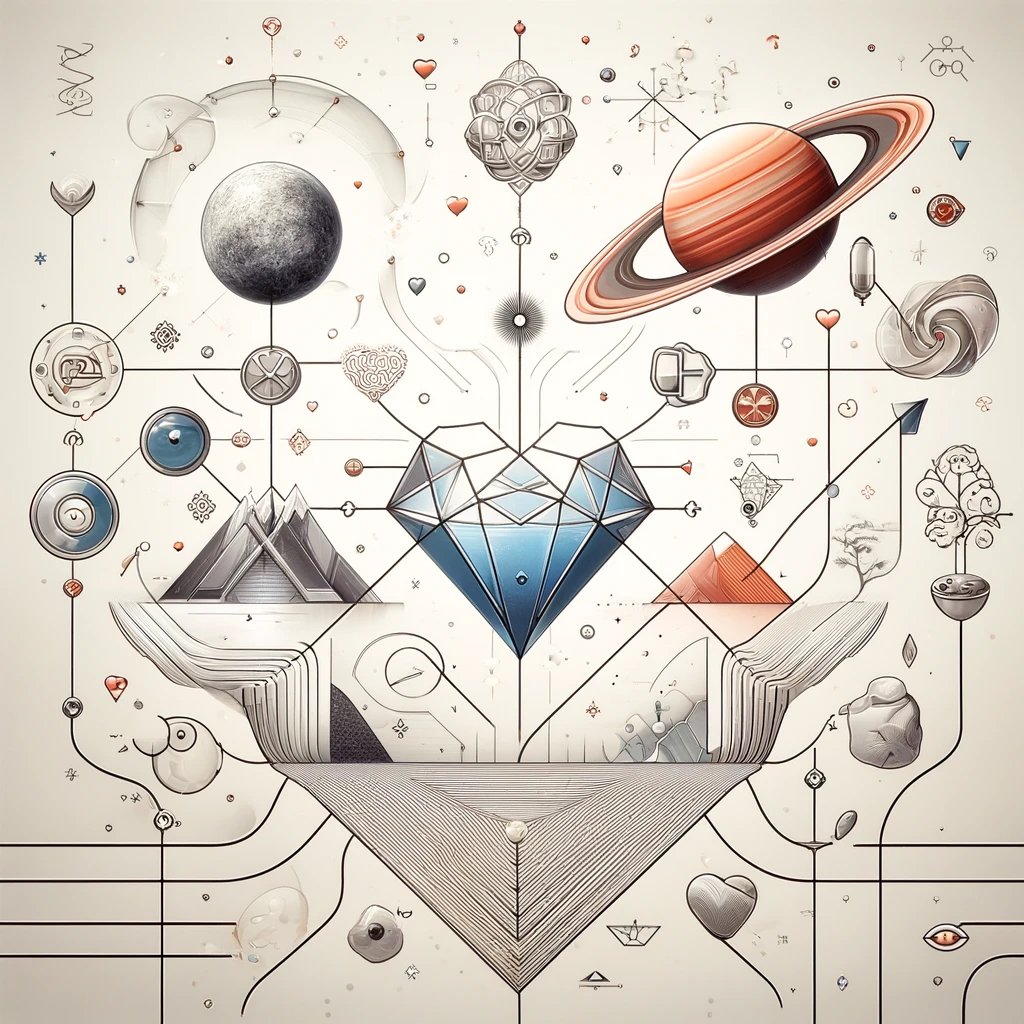


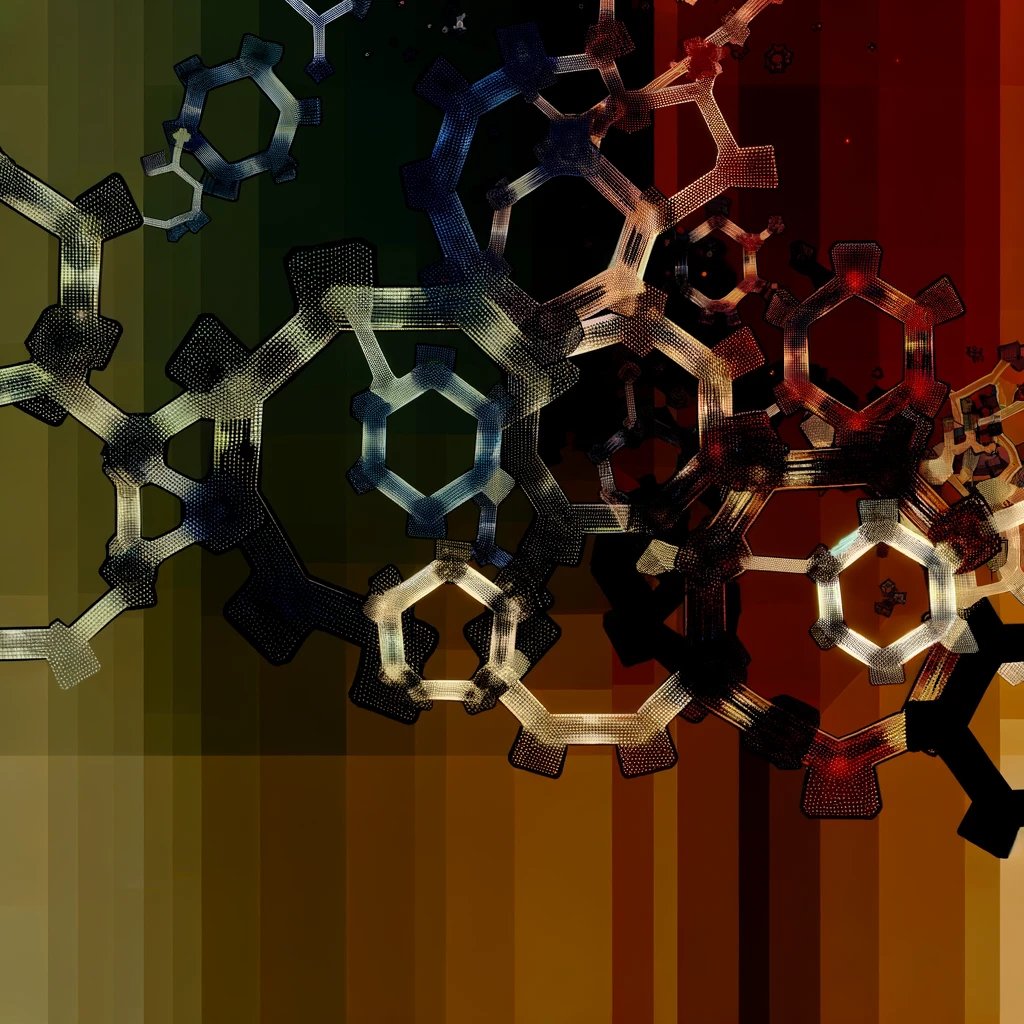



































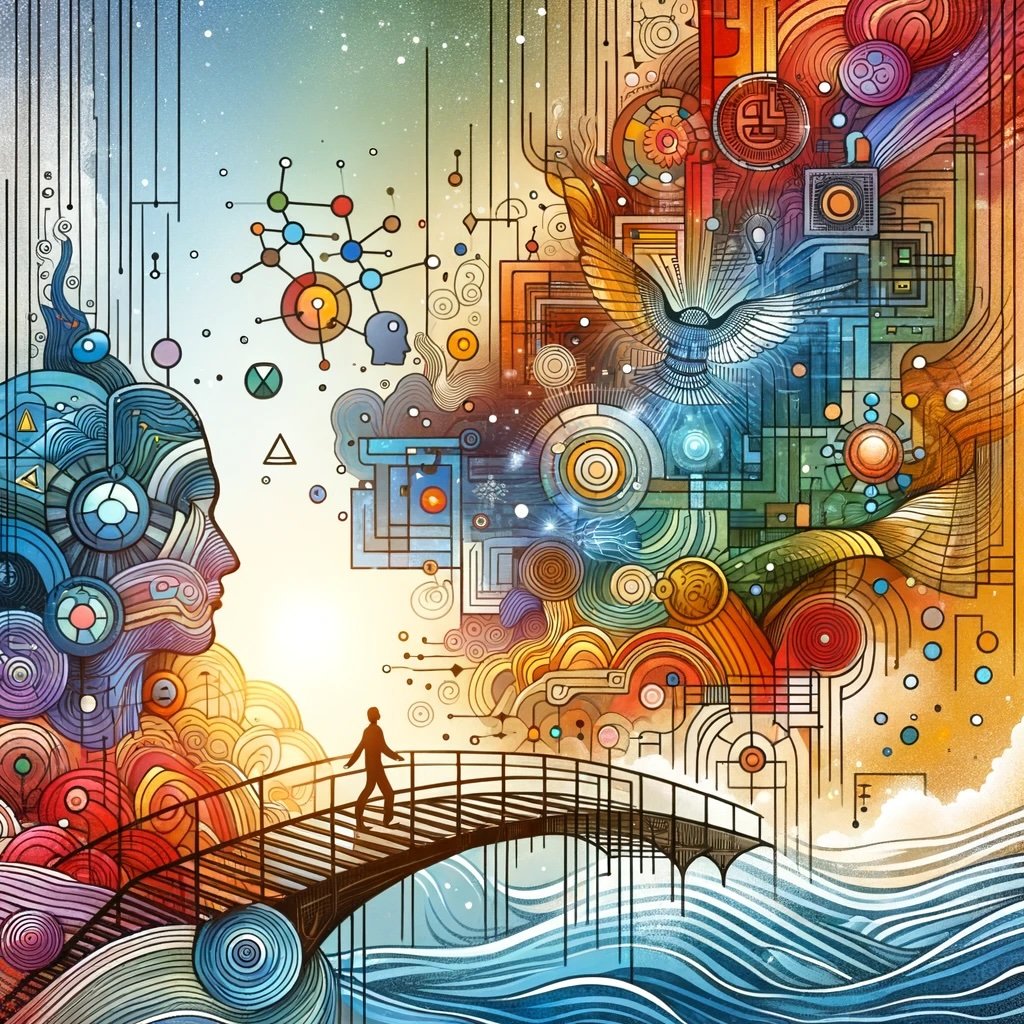














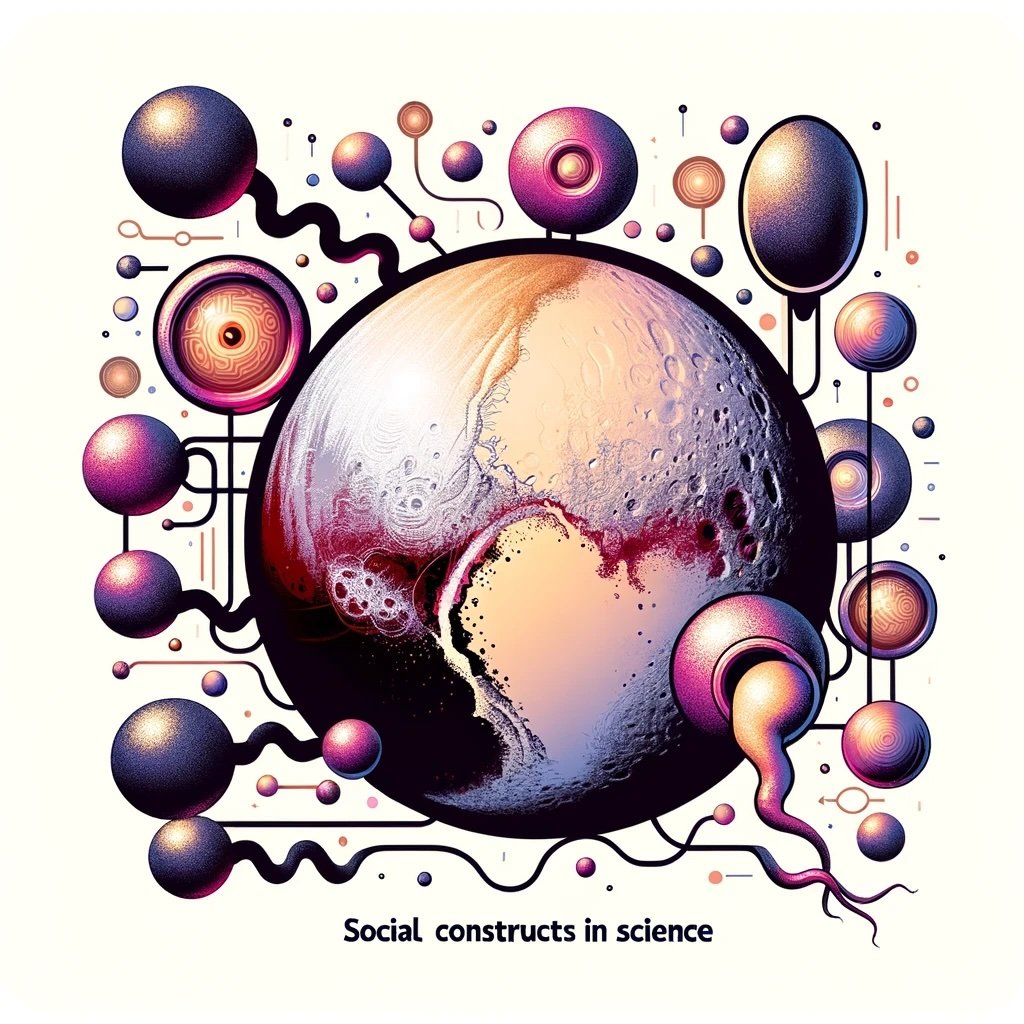











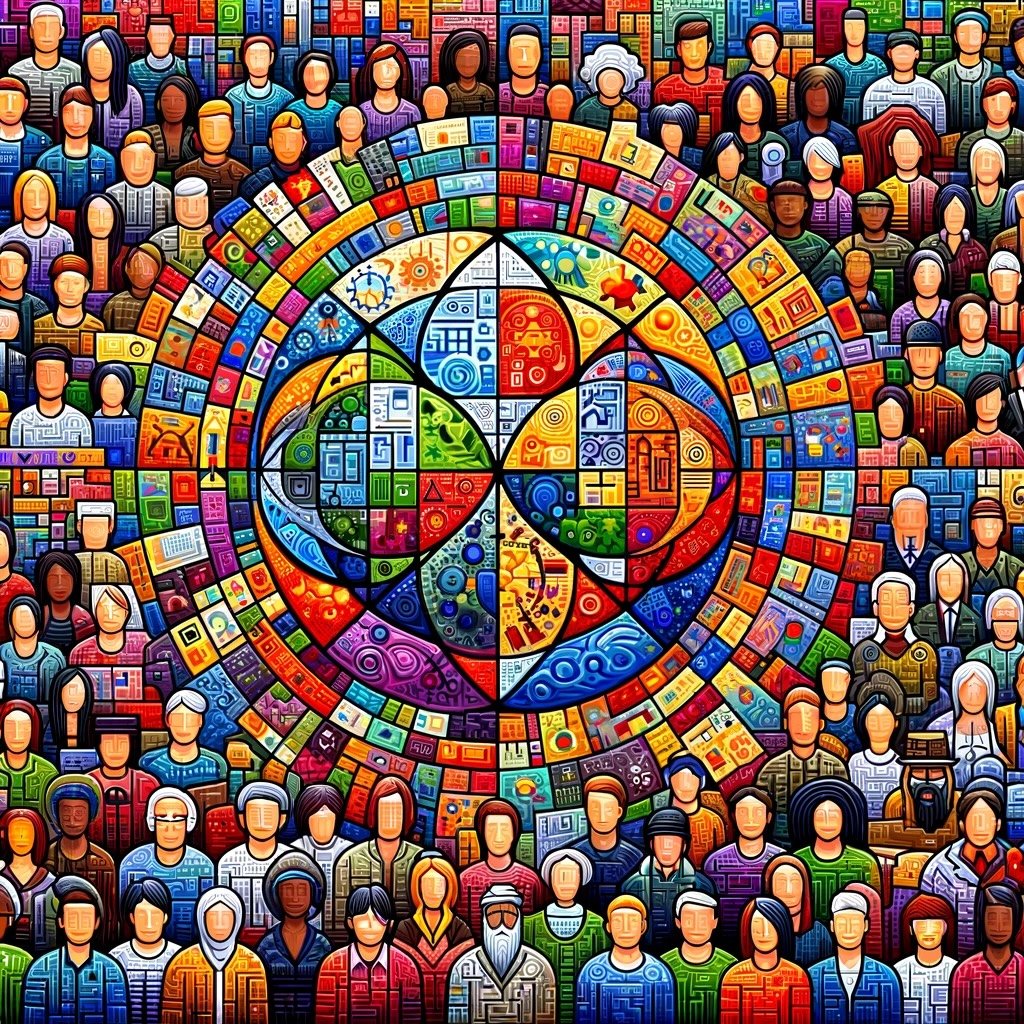

Examining the ways populism exploits incoherence and bad logic to make truth irrelevant, and the dangers this poses to political discourse.